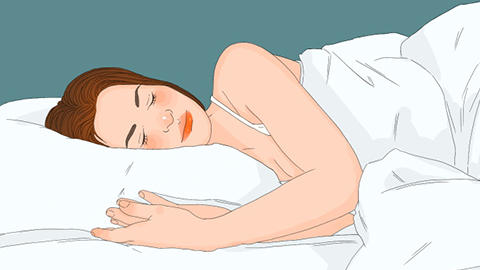How many hours of sleep per day during the postpartum confinement period is considered normal?
Generally, whether the daily sleep duration during the postpartum confinement period is normal should be determined based on individual factors such as the mother's physical recovery, newborn feeding needs, and daily activity schedule. If there are any physical discomforts or abnormal sleep patterns, it is recommended to seek medical advice promptly. Specific analysis is as follows:

When physical recovery is progressing well and the newborn has a regular routine, accumulating 8 to 10 hours of sleep per day is appropriate. If the mother’s wounds are healing properly without symptoms like dizziness or fatigue, and the baby can feed and sleep on a consistent schedule, she should take the opportunity to rest while the infant sleeps. Adequate sleep accelerates physical recovery, improves mental well-being, and supports milk production. In such cases, there is no need to restrict rest time—mothers should simply follow their body’s natural needs.
In cases of postpartum weakness or frequent infant crying, persistent sleep deprivation should not be tolerated. Conditions such as postpartum hemorrhage or newborn feeding difficulties can lead to fragmented sleep. Consistently sleeping less than 5 hours per day over a long period may weaken immunity, delay recovery, and potentially cause irritability or mood disturbances. It is important to adjust feeding and caregiving practices promptly to improve sleep quality.
Family members can help by sharing responsibilities such as diaper changes and soothing the baby to sleep, allowing the mother to rest during the newborn’s sleep periods. The bedroom should be kept quiet with soft lighting. Nutritionally, emphasize high-quality proteins, vegetables, and fruits, avoid overeating, and refrain from consuming caffeine-containing beverages. Light physical activity, such as walking around the room, can promote circulation, while soaking feet in warm water before bedtime helps relaxation and enhances sleep quality, supporting overall recovery.




